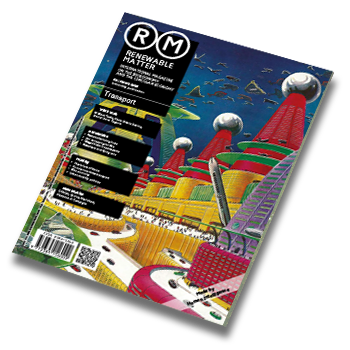It is possible to generate new value only by bringing into play economic, social and governance values: REbuild, the event that reflects on how to innovate the construction sector, returns from May 14 to 15 in Riva del Garda (Trentino Alto Adige, Italy) with this conviction, which indeed has been chosen as its title for this year, Values drive Value.
During the press conference launching the event, an exclusive research was presented in addition to the program. The research ‒ just published for the REbuild Observatory by the Department of Project Cultures of the Iuav University of Venice led by Prof. Ezio Micelli, chairman of the event's Scientific Committee ‒ shows that real estate redevelopment is rewarded by the market, but with strong heterogeneities that penalize in a more pronounced way small and medium-sized cities.
Italy's real estate assets
The wealth of Italian households is significantly tied to the homes they own. Overall, these assets are worth more than 5.2 trillion euros, but they are largely destined to lose value in the absence of efficiency upgrades. In fact, Italy's housing stock is old and highly energy-intensive. It consists of about 35 million housing units, 70 percent of which are more than 40 years old, which are responsible for 45 percent of national energy consumption and a large part of CO₂ emissions.
The “Green Homes” Directive and the REbuild study
Alongside the revision of the EU Energy Performance of Buildings Directive, the new research expands and deepens the one presented at REbuild 2023. Upgrading the existing housing stock means investing in the maintenance of an asset that, is capable of generating new economic value and a better quality of life, if renovated well. The study reports that in major markets, such as Milan, the demand largely supports the supply, and the most innovative deep retrofit interventions are able to generate their own profitability. However, in smaller cities where ownership is in the hands of low-spending segments of the population, researchers highlight the need for a state intervention to prevent the transition from being perceived as unfair and become a cause of territorial polarization, penalizing Italy compared to other nations in Europe.
The themes of REbuild 2024
The study will surely be a central theme at the tenth edition of REbuild, but it will not be the only one. The industrialization of processes, deep-retrofit, decarbonization, ESG, and housing health and wellness will be thoroughly discussed. Alongside, practical examples will be presented on the breakthroughs that digitalization and AI are imprinting with impressive speed, on design, construction, and market transformation processes, updates on materials and recycling, and on the PropTech that is advancing and changing the rules of Real Estate throughout the real estate supply chain. More than sixty international guests and speakers will delve into various aspects of the issues at stake during 16 lectures and 8 workshops. The closing conference will also develop a reflection on dwelling and living in space, an environment that does not allow waste of any kind and that makes the most of the available resources, thanks to technologies that in the future may be integrated into buildings on Earth.
This article is also available in Italian / Questo articolo è disponibile anche in italiano
Image: Envato


 Google Calendar
Google Calendar
 Outlook Calendar
Outlook Calendar
 Apple Calendar
Apple Calendar
 Yahoo Calendar
Yahoo Calendar
